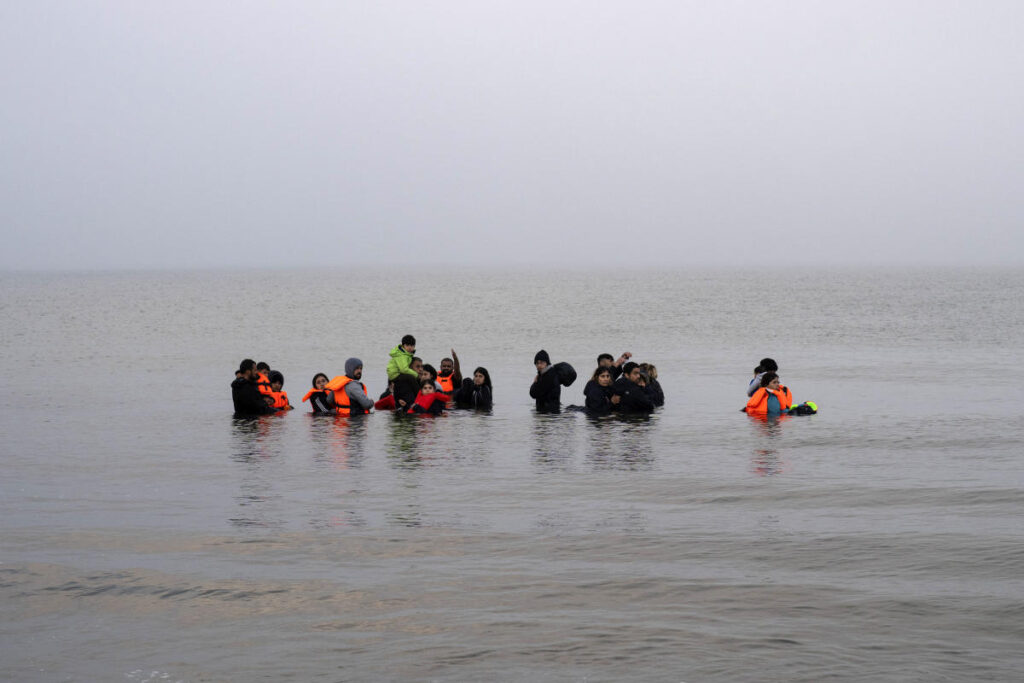In recent weeks, the English Channel has tragically witnessed a spike in migrant fatalities, emphasizing the growing dangers associated with perilous crossing attempts from France to the UK. French rescue vessels and a passenger ferry discovered the bodies of three migrants during a search operation, marking a grim milestone where the total count of dead and missing migrants for the year exceeded 50. The search was initiated after the discovery of a life vest, signaling a desperate attempt to navigate the treacherous waters in a heavily overloaded inflatable boat, which had capsized near Calais. This incident has highlighted the extreme risks involved in these crossings, which have surged since 2018.
This year presents a particularly dire situation for migrants, making it the deadliest on record for such crossing attempts, according to French maritime authorities. Prior to this incident, the authorities had reported that 49 migrants were either dead or unaccounted for in the Channel, with the recent occurrences raising that figure to 52. The figures outline a stark contrast in migrant fatalities: in 2023, only 16 were reported, while in previous years there were five in 2022 and 35 in 2021. The increasing numbers underline a pressing humanitarian crisis, as more individuals risk their lives in a desperate bid for a better future.
The rescue operation off Calais was notably complicated, as a passenger ferry participating in the recovery operation pulled one dead body from the water. When deemed unconscious upon boarding the ferry, he was swiftly airlifted by a French navy helicopter to a local hospital, where he was later pronounced dead. Additionally, two French rescue vessels worked tirelessly to save another 47 individuals from the sea, although two of them were unresponsive and sadly confirmed dead shortly thereafter. These fatalities highlight the harsh realities faced by migrants who attempt to cross the channel in unstable and overcrowded vessels.
Overloading of inflatable boats has emerged as a crucial factor in these tragedies, as vessels built to carry a maximum of 20 often find themselves with three times that number or more on board. Such excess weight can cause these flimsy boats to capsizing, ripping open and sinking under pressure. The dangers intensified last week with another incident where a baby was among the deceased when an overloaded boat sank, resulting in 65 individuals needing rescue. Similar incidents have persisted, including two separate situations earlier this month that claimed the lives of four migrants, including a young child.
The urgency of these rescues has led to frequent disruptions in commercial ferry services operating between northern France and the UK. The maritime prefecture reported that the latest recovery effort prompted a temporary halt to some routes, underscoring the high risks navigated by not only the migrants but also the authorities engaged in lifesaving endeavors. These disruptions exemplify the entangled relationship between migration and commercial operations, raising critical questions about policy and public safety in these perilous waters.
As the frequency of these tragic events grows, it resonates on both humanitarian and political fronts. The ongoing crisis is forcing policymakers to reevaluate strategies surrounding migration and border control while highlighting the severe risks many migrants willingly undertake in pursuit of a sanctuary or a more favorable life. The community remains concerned about the alarming increase in fatalities, pushing stakeholders to seek solutions that address the underlying causes of irregular migration while prioritizing the safety and lives of those involved. The call for a unified humanitarian response to this spiraling crisis continues to resonate as the world watches the unfolding situation in the Channel.

